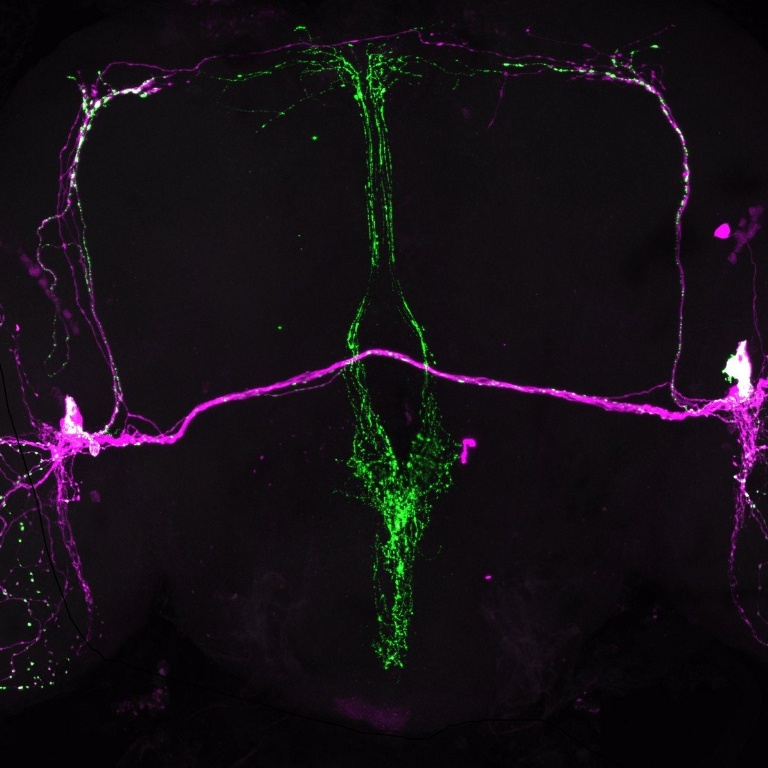A recent commentary article published in Proceedings of the National Academy of Sciences (PNAS) highlights research in Drosophila that reveals fundamental differences in circadian mechanisms between the sexes. The original article titled, “Circadian rhythms are more resilient to pacemaker neuron disruption in female Drosophila,” was published in PLOS Biology.
IU Biology Postdoctoral Fellow Aishwarya Iyer is the first author of the study, and Indiana University Bloomington Assistant Professor of Biology Maria de la Paz Fernandez is the senior author. Several undergraduate students also contributed and co-authored this paper, Eva Scholz-Carlson, most recently a research associate at IU, Eve Bell and Grace Biondi. The researchers collaborated with Shlesha Richhariya, a Postdoc at Brandeis. The study was supported by funding from the National Science Foundation (NSF).
Iyer and co-authors found that mutations disrupting the neuropeptide PDF or its receptor significantly impaired circadian rhythms in male fruit flies, while females remained largely resilient. Moreover, CRISPRmediated disruptions in key pacemaker cells (“Morning cells”) and manipulations of molecular clocks in evening cells produced stronger effects on males, suggesting that females rely on a more distributed circadian network.
Fernandez studies the neuronal basis of behavior, including neuronal architecture of circadian rhythms, and directs her IU lab toward understanding how these mechanisms differ by sex.

 The College of Arts
The College of Arts